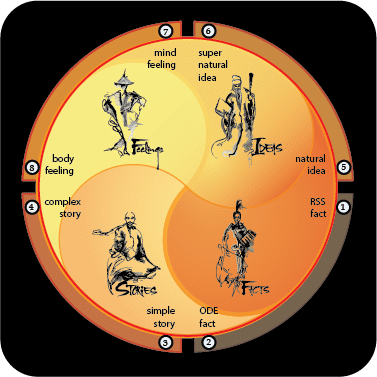Why do our voices sound different in recordings than what we hear in our heads?
To begin with, realize, this difference is universal. It’s simply built into human nature. This means it cannot stem from ignorance or injury. Both learning and wounding are fractal, meaning, they are recognizable patterns which always repeat differently.
My point is, we all experience this difference. Nothing unusual here. Oddly, few people ever seriously question what’s actually behind this. The real answer? First it cannot be merely physical. In fact, materialist answers miss the entire point. The difference we’re trying to describe and define IS the difference between the mind as observer and the body as observer. So both must be included. Else we answer the question by pretending the answer is simply physical proximity.
Descartes and his contemporaries voiced this difference as things with physical extension (things which physical exists out in the word) and things without extension (thing which are entirely contained in our minds). a century later, David Hume voiced this dichotomy as “thoughts” and “impressions,” impressions being what the body observes, and thoughts being what the mind observes.
I see Hume’s way of describing this dichotomy as especially relevant to answering your question. Hume describes our experience of impressions as “all of our more lively perceptions.” Examples he gives are our sense of the color red and our feelings of anger. Thoughts then are what arise when we reflect on these impressions. Thus by nature, they are art best “pale imitations” of our impressions.
Now, to answer you question, consider which comes first, the sound you are hearing or your thoughts about this sound, including your recall. Specifically, think about how a recording of the sound, once it exists, stays the same in theory, whereas the longer we wait to recall that same sound in our minds, or even if we try to judge this in real time, in truth, our thoughts always occur after we physically sense this sound. And the longer we wait to access this sound, the more it fades away.
Finally, this difference is well known to all audio engineers. In fact, it can be the bane our our existence at times. We finish a mix and leave for the day thinking it’s the greatest mix we’ve ever done. Then three days later, we listen and ask ourselves, what were we thinking.
Want to have a satisfying answer? Then try not to follow all this with a “logical” why question. Rather, stop at the “natural” why and you’ll be far better off. Why? Because while we can, with effort, learn the nature of our world, learning why it’s this way is a fool’s errand.
